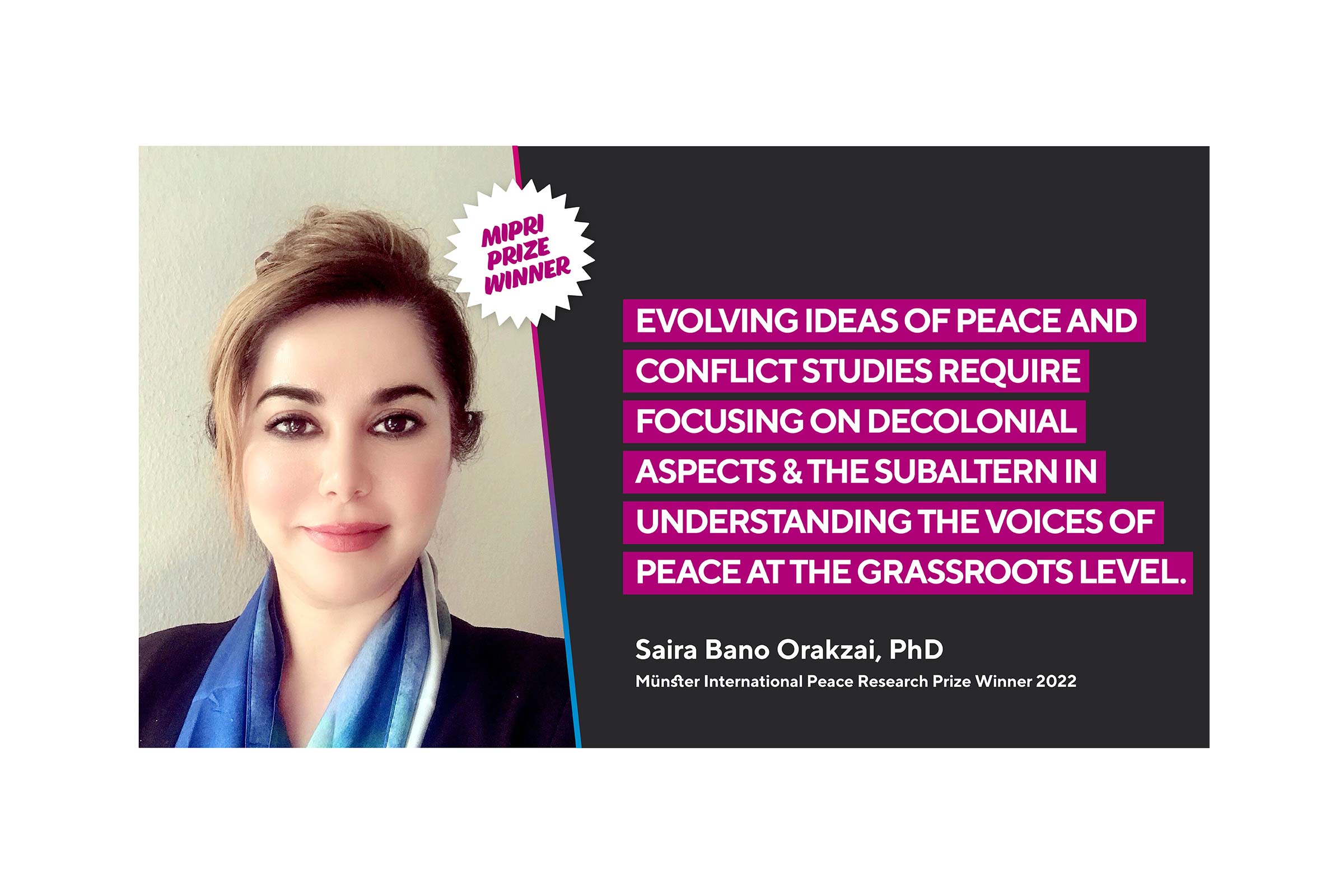
WiRe Meets Mipri: a Guest Interview with Dr Saira Orakzai
If you’ve been a visitor to our blog in the past, you might have noticed references here and there to mipri, the Münster International Peace Research Initiative, a programme started by the University of Münster in 2021 in collaboration with the city of Münster to foster future-oriented ideas and support international scholars who are working in peace and conflict research. Mipri looks to continue Münster’s legacy as a space for sustainable peace-building, given that the city served as a the location for the signing of the Peace of Westphalia on October 24, 1648. The Peace of Westphalia ended a terrible decades-long religious war in Europe. In light of today’s situation in Europe, supporting the search for diplomatic conflict-solving solutions feels more important than ever.
Enjoy the interview with Dr Saira Orakzai
To commemorate the 374th signing of this historic treaty, we invited the current mipri fellows to tell us more about their projects on peace and conflict related research.
Today’s post comes to us from Dr Saira Bano Orakzai, an Australia Award scholar (2009-2013) and Pakistan’s first Ph.D. in Peace Studies. She is the Inaugural Chevening Fellow at the University of Oxford 2016-17, Charles Wallace fellow 2014, and was also a research fellow at Harvard University 2017-18. In 2021, she has been awarded Australia Awards Small Grant for teaching two online course on Peace and Conflict Studies. In February 2022, two of her chapters have been published in the Encyclopedia of Violence, Peace and Conflict, Elsevier Academic Press. She has also published in the field of indigenous peacebuilding, countering violent extremism, conflict transformation, peace education and religious-cultural understanding of peace and conflict studies.
Her project with mipri und PD Dr. Felicity Ann Jensz is entitled ” Bacha Khan’s Philosophy of Nonviolence: Bridging the gap between theory-practice and policy making in the conflict regions of Pakistan”.
